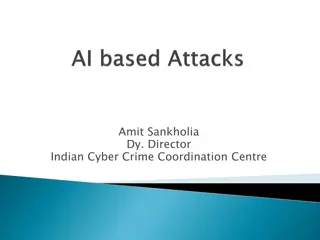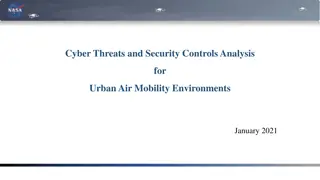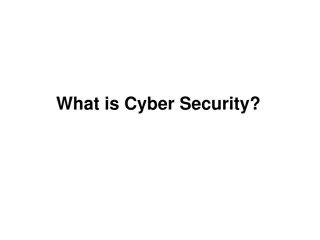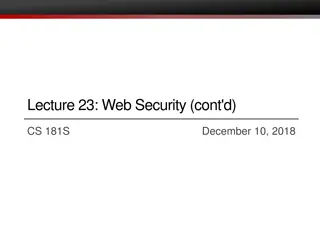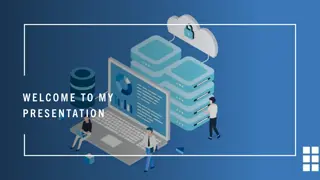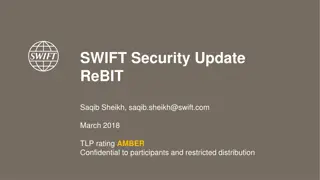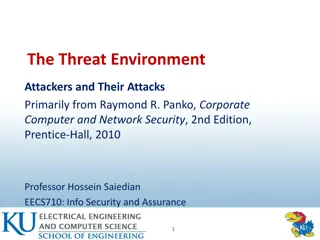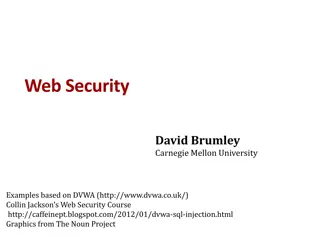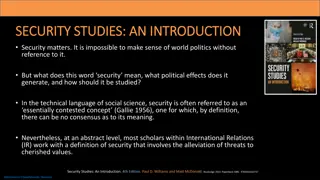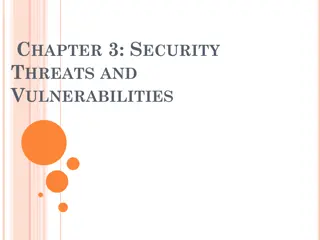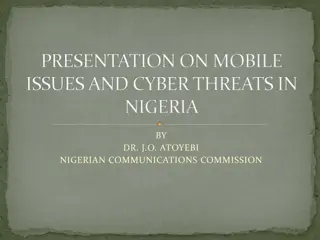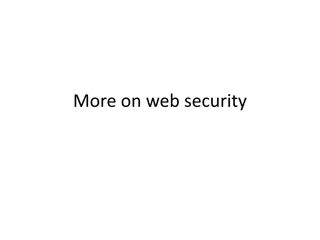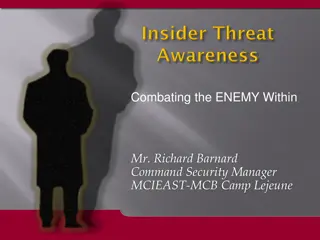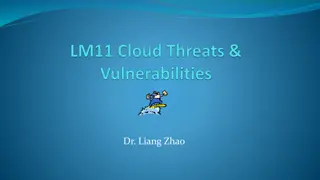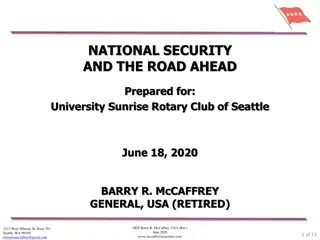Understanding Web 2.0 and Online Security Threats
Explore the evolution of Web 2.0, the concept of Read/Write web, the significance of blogs and wikis, and the impact of social media sites. Learn about the risks posed by malware, trojan horses, viruses, and worms in the online landscape.
Download Presentation

Please find below an Image/Link to download the presentation.
The content on the website is provided AS IS for your information and personal use only. It may not be sold, licensed, or shared on other websites without obtaining consent from the author. Download presentation by click this link. If you encounter any issues during the download, it is possible that the publisher has removed the file from their server.
E N D
Presentation Transcript
WEB 2.0 READ/WRITE WEB Eidson
WORLD WIDE WEB Sir Tim Berners-Lee World Wide Web Inventor-1989 Web 2.0 The Read/Write Web
BLOGS Coined phrase in 1997 Short for Weblogs Bloggers are people who blog Google has a free one Blogger http://wordpress.org/showcase/
BLOGGER Leading blogging site is Blogger 6.7 million people blog Majority of bloggers are women Business uses them to get customers 14% earn a living by blogging http://www.socialmediatoday.com/content/blogconomy-blogging-stats-infographic
BLOG CHARACTERISTICS Easily created Easily updated by author Web site that contains dated text entries in reverse chronological order (newest entry first) about a particular topic
WIKIS A collaborative Webspace where anyone can add content and anyone can edit it. Wikipedia (online encyclopedia) Wikispaces (free resource) http://www.wikispaces.com/site/tour#introduction
SOCIAL MEDIA SITES Online communities of people who share interests and/or activities or want to share information Younger people use social networking sites more
MALWARE Definition A term that describes a group of malicious software programs intended to annoy you or destroy your data Examples: worms, viruses, Trojan horses, spyware
TROJAN HORSE A destructive program that pretends to be a safe application, but tries to steal your information. It does not replicate (reproduce itself).
VIRUS A program that is loaded on your computer, without your knowledge, and tries to damage your computer. Typically uses all your memory by replicating itself.
WORM A program that replicates itself over a computer network and performs malicious actions. A type of virus. Cannot reproduce itself.
SPYWARE Software that secretly gathers user information through your Internet connection without your knowledge. Is usually downloaded as part of freeware or shareware.
SUMMARY Web 2.0 has many great tools: Blogs Wikis Social Networking Sites Malware Trojan Horse Virus Worm Spyware
REFERENCES Carvin, A. (2005, February 1). Tim Berners-Lee: Weaving a semantic web. Retrieved March 2, 2009, from http://www.digitaldivide.net/articles/view.php?ArticleID=20.




